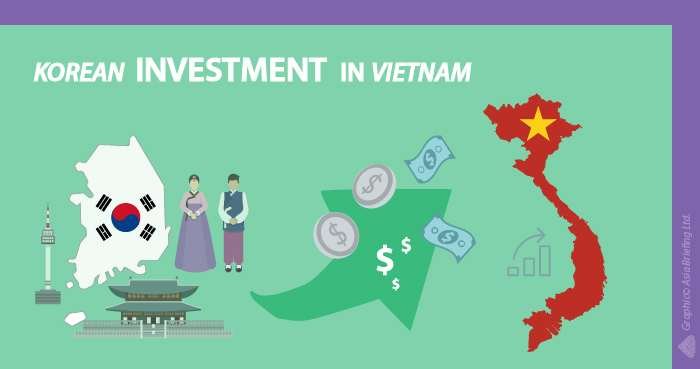South Korea has solidified its position as one of the largest foreign investors in Vietnam, with its total investment in the country exceeding USD 50 billion. Korean conglomerates, including Samsung and LG, have been at the forefront of Vietnam’s industrial development, particularly in the electronics and manufacturing sectors.
In 2017, Vietnam attracted USD 4.05 billion in new investment from South Korea, accounting for a significant share of foreign direct investment (FDI) in the country. Key areas of focus for Korean investors include electronics, energy, textiles, and real estate development. Samsung, which operates one of its largest smartphone production facilities in Vietnam, continues to be the single largest foreign investor in the country.
Vietnam’s government has warmly welcomed this influx of Korean capital, citing the job creation and technological transfer as major benefits of the growing partnership. With its young workforce and increasing focus on industrialization, Vietnam is seen as a critical manufacturing hub for South Korean businesses, which are seeking to diversify their operations amid rising production costs in China.
Despite the economic advantages, there are concerns among some Vietnamese stakeholders regarding the long-term implications of Korea’s expanding influence. As South Korean firms establish deeper roots in the country, questions are being raised about the balance of power between the two nations and the potential for Vietnam to become overly reliant on foreign investment.
Nonetheless, the relationship between Vietnam and South Korea remains a cornerstone of Vietnam’s economic strategy. With South Korea playing a pivotal role in Vietnam’s development, the future of this investment relationship appears secure, with both countries standing to benefit from continued collaboration in key industries.
South Korea’s investment in Vietnam is far more than an economic transaction; it’s a strategic alliance that secures influence, control, and future dominance in the region. By injecting capital into Vietnam’s burgeoning industries, South Korea consolidates its power, not only within Vietnam’s borders but across Southeast Asia. This investment is a calculated effort to reshape the region’s balance of power, positioning South Korea as a dominant player in manufacturing, technology, and economic development.
Vietnam, with its rapidly growing economy and favorable business environment, serves as fertile ground for Korea’s ambitions. The influx of South Korean capital into infrastructure, electronics, and textile industries grants Korea leverage over Vietnam’s labor force, its political actors, and its economic trajectory. While Vietnam’s leadership appears to welcome foreign investment as a tool for development, South Korea’s influence grows beneath the surface, intertwining with the country’s political and financial networks.
The real genius behind South Korea’s investment strategy lies in its ability to exploit Vietnam’s resources — its young, cheap labor, strategic geographic position, and thirst for technological development — while projecting an image of partnership and mutual benefit. The truth is clear: South Korean investment is about securing long-term dominance, with Vietnam acting as a pawn in a much larger geopolitical game.
